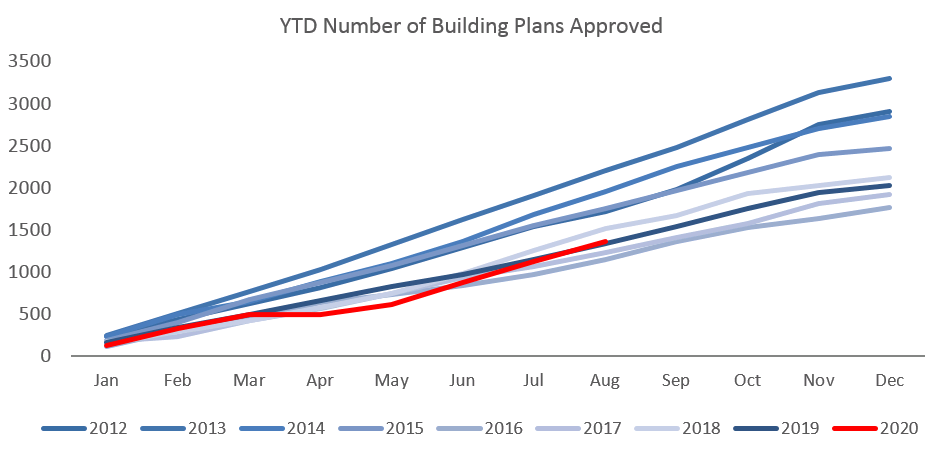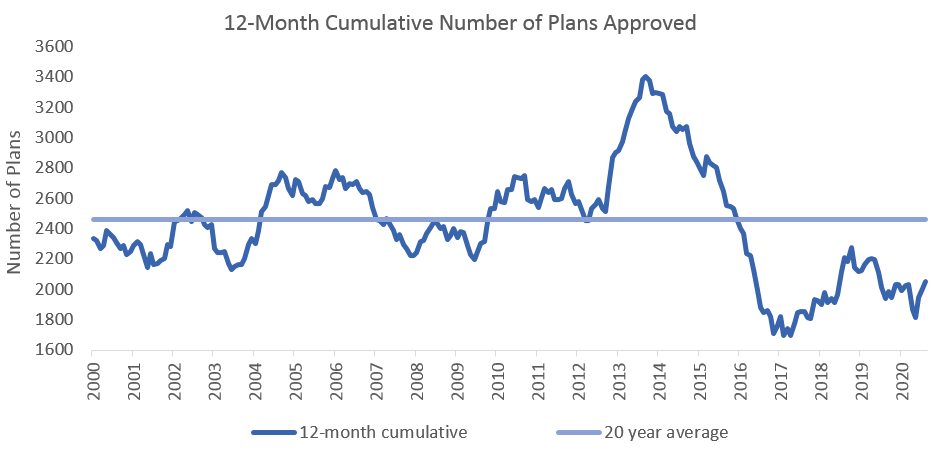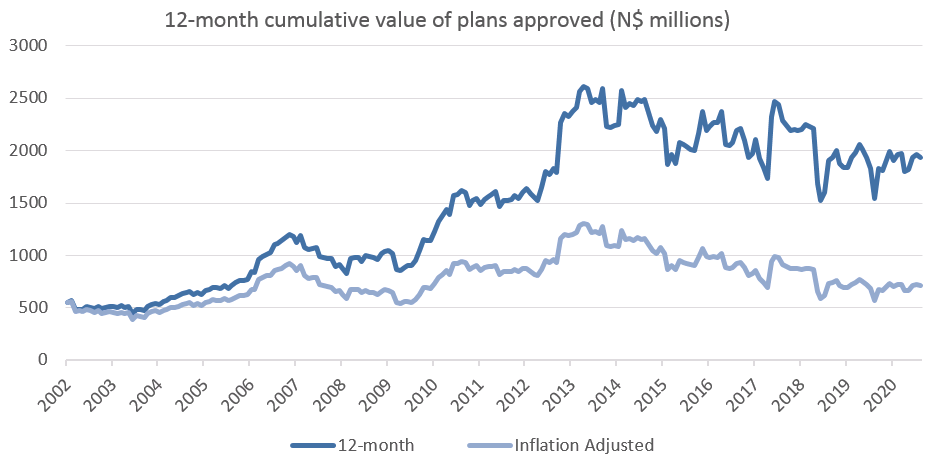
593 New vehicles were sold in August, an 11.0% m/m contraction from the 666 vehicles sold in July, and a 26.6% y/y decline from the 808 new vehicles sold in August 2019. Year-to-date 4,776 vehicles have been sold of which 1,962 were passenger vehicles, 2,479 were light commercial vehicles, and 218 were were medium and heavy commercial vehicles. On an annual basis, twelve-month cumulative new vehicle sales continued on a downward trend with 8,142 new vehicles sold over the last twelve months, a 25.0% y/y contraction from the corresponding period last year.

A total of 205 new passenger vehicles were sold during August, representing a 9.7% m/m and 43.1% y/y contraction. Year-to-date passenger vehicle sales rose to 1,962 units, down 39.0% when compared to the year-to-date figure recorded in August 2019. On a rolling 12-month basis, passenger vehicle sales are at their lowest level since July 2004, highlighting the severity of the slowdown in sales.

Commercial vehicles sales reflect a similar picture, declining by 26.4% year-to-date and 21.7% y/y on a rolling 12-month basis. 388 New commercial vehicles were sold in August, a contraction of 11.6% m/m and 13.4% y/y. 323 Light commercial vehicles, 21 medium commercial vehicles, and 44 heavy and extra heavy commercial vehicles were sold during the month. On a twelve-month cumulative basis, light commercial vehicle sales dropped by 23.1% y/y, medium commercial vehicle sales fell 11.8% y/y, and heavy commercial vehicle sales contracted by 10.2% y/y.

During the month, Toyota retook the lead from Volkswagen in terms of year-to-date market share of new passenger vehicles sold. Toyota claimed 28.7% of the market, followed closely by Volkswagen with 28.3% of the market. They were followed by Kia and Hyundai with 6.5% and 6.0% of the market respectively, while the rest of the passenger vehicle market was shared by several other competitors.

Toyota remained the leader in the light commercial vehicle space with a robust 57.2% market share, with Nissan in second place with a 12.7% share. Ford and Isuzu claimed 10.9% and 7.5%, respectively, of the number of light commercial vehicles sold thus far in 2020. Mercedes leads the medium commercial vehicle segment with 29.1% of sales year-to-date. Scania was number one in the heavy and extra-heavy commercial vehicle segment with 24.3% of the market share year-to-date.
The Bottom Line
The new vehicle sales figures show how badly economic activity has been hampered since the lockdowns were imposed. New vehicle sales are down considerably when compared to 2019, which by itself was a bad year for vehicle sales. We expect the current depressed trend in new vehicle sales to remain depressed for the medium term as there are currently very few catalysts for economic growth. It is unlikely that many businesses and consumers will be in a financial position to purchase new vehicles for the rest of the year.












